Build a Cloud Business Case
Deliver a Cloud Proof of Concept
- Plan migration of a business applications or services to the cloud. Where and how should the company implement cloud environments?
- Understand the performance baselines and goals. Measure and monitor performance, reliability, uptime, capacity, scaleability etc.
- Understand risk tolerance and security requirements. Are there any implications for data compliance or external regulations?
- Evaluate current direct and indirect costs vs future cloud associated costs. Measure how CapEx and OpEx changes will affect budgets moving from on-premise to subscription. Forecast cost and maintenance optimisations and ROI.
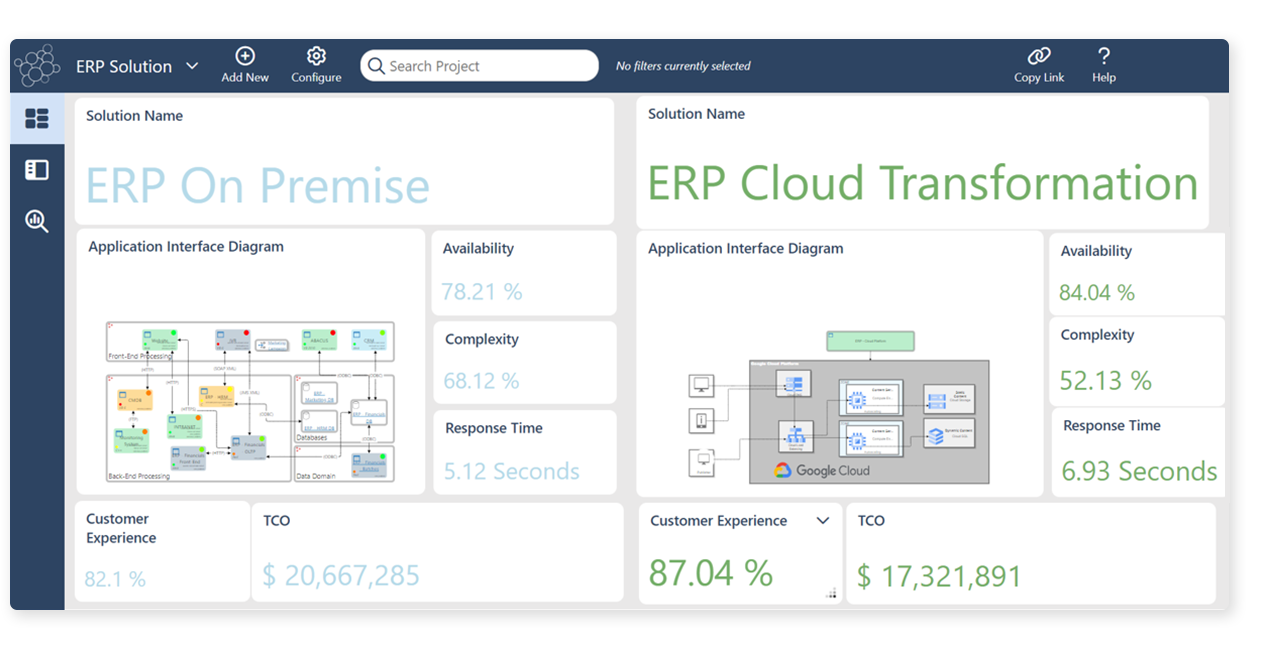
Cloud Architecture Diagrams & Roadmaps
An actionable cloud roadmap requires a clear overview of technical and business landscapes
- Model your current technology infrastructure including dependencies
- For cloud architecture diagrams, use stencils with official AWS, Azure or GCP icons
- Understand how your applications, data stores, and systems support requirements. Communicate their value to business teams
- Map out how cloud technologies will augment existing business capabilities or provide new functionality
- Use dynamic visualizations and automated Gantt charts to track project progress and keep a close eye on costs
ABACUS can be used to to build viewpoints and dashboards which give stakeholders a visual overview of systems, processes and technology
Benefits of Cloud Migration
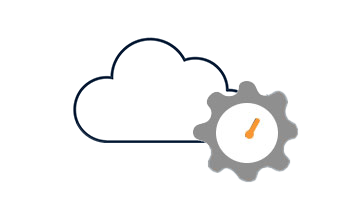
Efficiency
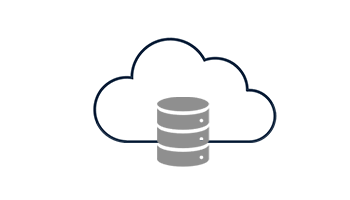
Data Storage

Security
Automate Calculations & Technical Metrics
Algorithms can be used to do the heavy lifting of both business and technical analysis.
- Calculate key metrics such as cost (TCO), performance, reliability. Compare these across scenarios/options.
- Rank solutions – measure the amount of work required to redesign or refactor each system vs continued maintenance of current systems (Complexity analysis)
- Understand and quantify the security and risk implications of your cloud migration scenarios
- The most effective analytics will be tailored to your business and technology environment. In ABACUS, users can set up or customize analytics using no-code algorithms.
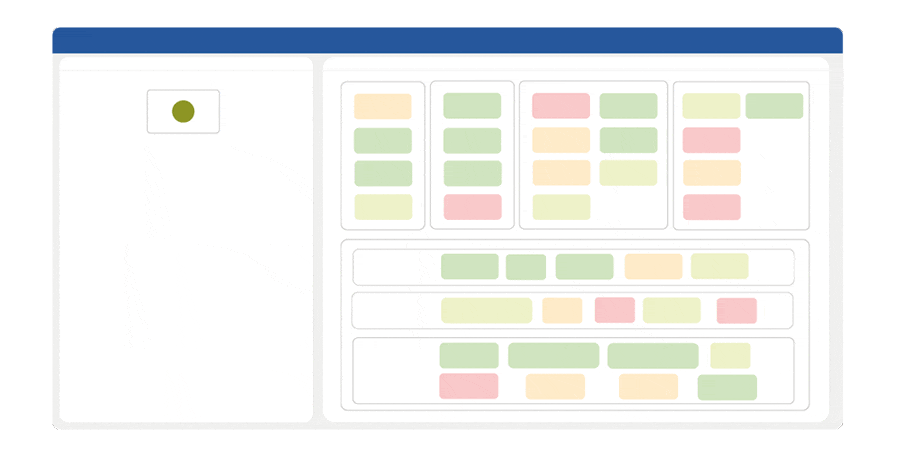
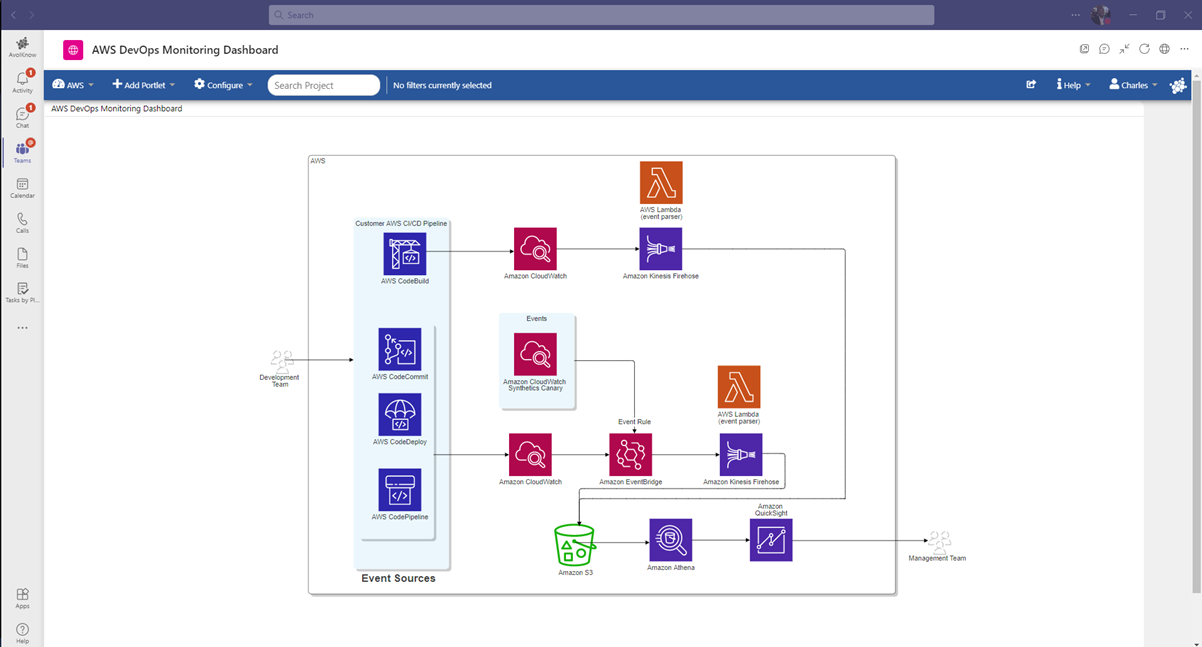
Cloud Cost Management & Cloud Reference Architectures
Set-up continuous monitoring for cloud governance and financial management
- Capture the operational requirements of your systems including service levels, integrations, maintenance etc.
- Add proposed cloud technologies to existing roadmaps; undertake gap analysis to identify the gaps between current and future state architectures
- Prioritize migrations and monitor key metrics as projects progress. Save reference architectures for reuse and feed insights back into future migration plans.
Connect and Collaborate on Business and IT Data
Present roadmaps and metrics on cloud strategy across your enterprise using browser-based dashboards, diagrams and dynamic visualizations.
- Combine your Visio diagrams and Excel spreadsheets into properly integrated and editable catalogues and diagrams to track application and infrastructure registers and processes
- Create on-demand reports. Tailor web-based dashboards for updating stakeholders on relevant metrics.
- Access easily. Embed as tabs in MS Teams, Confluence etc. for easy access.
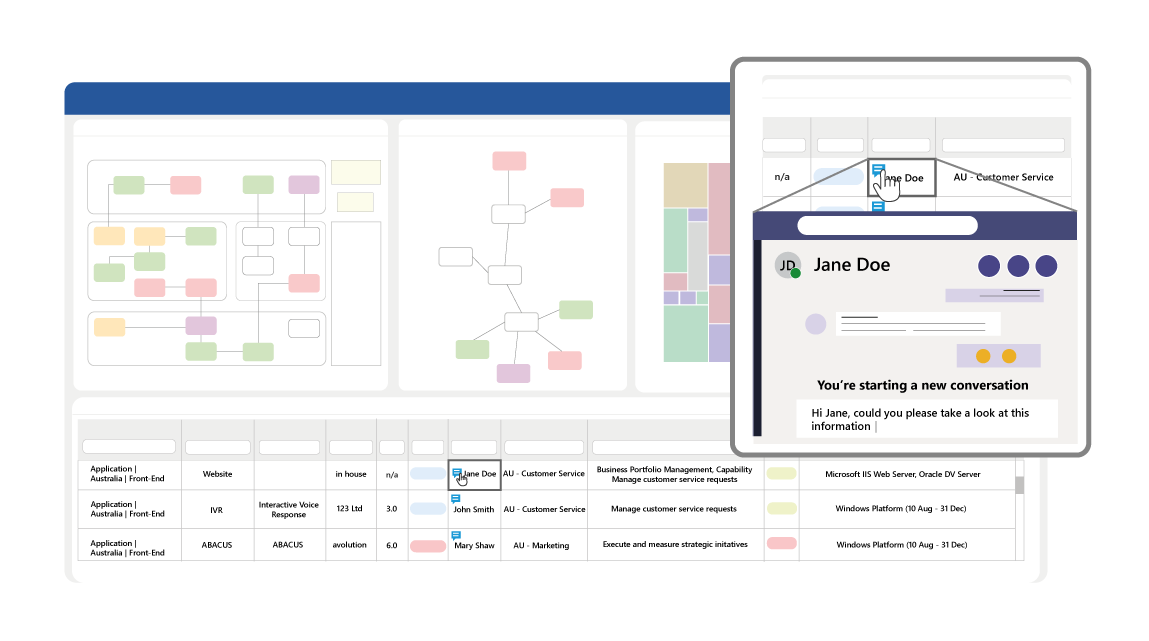
Cloud Architecture Patterns & Templates
Cloud Migration is both a Business and IT Journey. Download the eBook and explore the essential elements for a Cloud Business Case such as “Where and how should the company implement cloud environments?” and “What are the benefits (modernization, agility)?”
Roadmapping Cloud Migration and Architecture
The Open Group Webinar
This webinar covers:
- Essential elements for a Cloud Business Case
- Roadmapping for Cloud Migration and Application Rationalization
- Managing IT risks and Cybersecurity in Cloud Architectures

